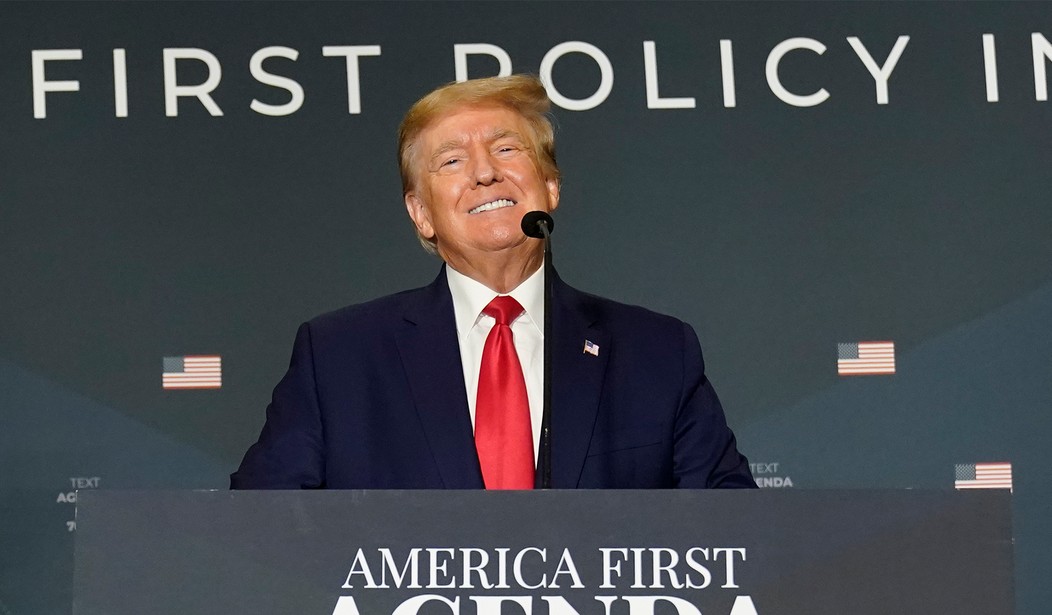Donald Trump's choices of Florida Sen. Marco Rubio as secretary of state (reportedly) and Florida Rep. Mike Waltz as White House national security advisor, as well as his selection of New York Rep. Elise Stefanik as UN ambassador, signal to the world that a more muscular approach to foreign policy by the United States is in the offing.
Rubio has emerged in recent years as one of the main China hawks in Congress and a critic of the Ukraine War. Waltz has been vocal about the lack of defense spending by some NATO allies and has also been highly critical of China. Stefanik has called for a complete "reassessment" of U.S. spending on the UN and has pushed to block U.S. funding for the United Nations Relief and Works Agency for Palestine (UNRWA).
Waltz was destined to get some kind of role on Trump's national security team. He's recognized as one of the most knowledgeable congressmen on foreign and defense policy. “Stopping Russia before it draws NATO and therefore the U.S. into war is the right thing to do,” Waltz wrote in an opinion piece at Fox News. “But the burden cannot continue to be solely on the shoulders of the American people, especially while Western Europe gets a pass.”
Waltz has been one of the most influential Republican voices on Capitol Hill in national security over the past few years, serving on the House committees overseeing the armed forces, intelligence and foreign affairs. He also served this summer on the task force investigating the apparent assassination attempts on Trump.
At the outset of the war in Ukraine, Waltz called for the Biden administration to provide a steady supply of weapons and explosives to Ukrainian forces so they could attack Russian supply lines. But he has increasingly adopted Trump’s rhetoric about the NATO military alliance that aids Ukraine, questioning why its member countries aren’t doing more to counter Russia and bolster their defenses.
Rubio, a one-time Trump critic, has emerged in recent years as one of the President-elect's closest advisors.
Republican Jewish Coalition (RJC) Chairman Sen. Norm Coleman and CEO Matt Brooks said in a statement that "we know that with Senator Rubio leading the State Department, America will stand shoulder-to-shoulder with our allies and confront our enemies."
"In these extraordinarily dangerous times, Senator Rubio is an outspoken defender of Israel who has always had the Jewish state’s back," they added.
Rubio also echoes Trump's call for negotiations in Ukraine. His views on that conflict have changed since February 2022, when Russia invaded Ukraine. He originally called for giving Ukraine all the support they needed to win the war. He now says that the U.S. should facilitate peace negotiations between the two warring countries.
Rubio has been one of the leading critics of China in Congress as well.
Mr. Rubio has been among the most outspoken senators on the need for the United States to be more aggressive on China. He has adopted positions that later became more mainstream in both parties. For example, while serving in Congress during the first Trump administration, he began advocating industrial policy meant to help the United States better compete with China’s state-directed economy.
Mr. Rubio also served as a co-chairman of the bipartisan Congressional-Executive Commission on China, which has aimed to craft aggressive policy on China, especially in trying to address human rights abuses there. In 2020, Mr. Rubio sponsored a bill that tried to prevent the import of Chinese goods made with the use of forced labor by China’s ethnic Uyghur minority. President Biden signed it into law the next year.
Stefanik will replace Linda Thomas Greenfield, a career diplomat. Her strong support for Israel and opposition to funding UNRWA will likely put her at odds with many delegates at the UN. The international body is already running for cover. They plan a "charm offensive" to try to keep Stefanik from causing them too much grief.
Turtle Bay is, however, bracing for an era of austerity. U.N. officials have said for months that, independent of potential U.S. funding cuts, they’ve been looking at liquidity issues and seeking ways to save money.
Several U.N. diplomats said they expected the U.S. to zero-out funding for the U.N. Relief and Works Agency, or UNRWA, which oversees aid to Gaza entirely. “We have to plan as if U.S. funding for UNRWA will never come back,” said a U.N.-based diplomat.
Some diplomats contend U.S. cuts to the U.N. — an issue on which Congress would get a say — can be managed if they aren’t too steep.
Related: Another Big Winner From the Election: School Choice
One issue where Trump's national security team may differ markedly from Biden is in its stance on India. The new administration is much more likely to seek stronger ties with the subcontinent as a way to counter China's growing influence in the region.
Rubio has been a vocal advocate for strengthening ties with India, positioning the country as a crucial partner in the Indo-Pacific region. Over the years, he has championed efforts to deepen US-India cooperation, particularly in the areas of defence and trade.
Rubio’s support for India aligns with bipartisan efforts in Congress to counterbalance China’s influence in Asia. He has frequently highlighted the strategic importance of a strong India-US relationship, advocating for policies that not only promote shared economic interests but also reinforce the democratic principles both nations hold.
Trump has assembled a strong, America First foreign policy team. It also includes former ICE director Tom Homan, who has been a vocal critic of Biden's open borders policy. Implementing Trump's foreign policy vision won't be easy, considering the forces arrayed against it. But on paper, the team appears strong and capable.










Join the conversation as a VIP Member